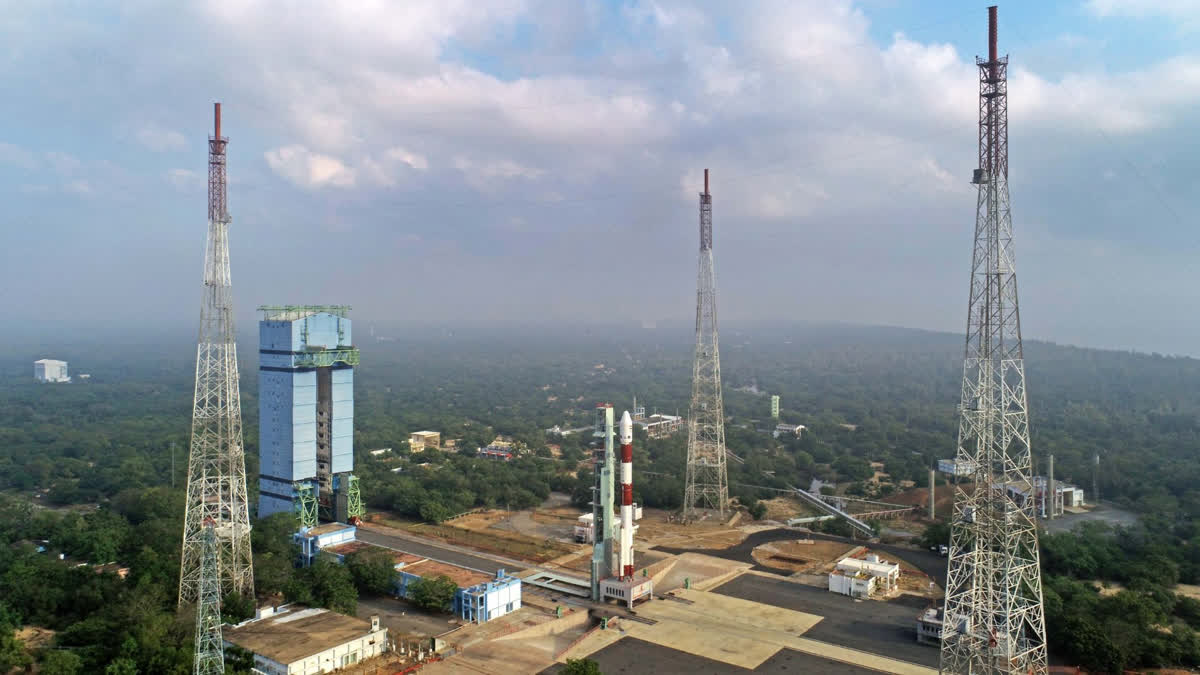Sriharikota (Andhra Pradesh) : ISRO, India's premier space agency, is rolling in New Year 2024 with yet another prestigious launch from its space port, Sriharikota space centre, in Andhra Pradesh. ISRO's first X-Ray Polarimeter Satellite (XPoSat) will be launched from the first launch pad of SHAR (Sriharikota High Altitude Range) on January 1 at 9.10 am.
"The launch of the X-Ray Polarimeter Satellite (XPoSat) is set for January 1, 2024, at 09:10 Hrs. IST from the first launch-pad, SDSC-SHAR, Sriharikota," said Indian Space Research Organsiation (ISRO) in a post on X, formerly Twitter. The XPoSat will study space objects like black holes. It will be launched by onboard a Polar Satellite Launch Vehicle (PSLV-C58) rocket.
The X-ray Polarimeter Satellite will help provide new insights into the polarisation of intense X-ray sources in space. Already, America's National Aeronautics Space Agency (NASA) undertook a similar mission in 2021. The mission aims at measuring polarisation of X-rays in the energy band 8-30 keV emanating from about 50 potential cosmic sources. This will help in carrying out long term spectral and temporal studies of cosmic x-ray sources.
The XPoSat's primary payload is POLIX (Polarimeter Instrument in X-Rays) which is developed to measure polarimetry parameters by the Raman Research Institute and XSPECT (X-ray Spectroscopy and Timing), built by the U R Rao Satellite Centre, Bengaluru. The X-Ray polarisation serves as a crucial diagnostic tool for examining the radiation mechanism and geometry of celestial sources. The Mission life is about 5 years.
